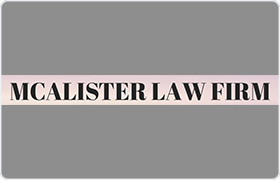DISTRICT ATTORNEY (D.A.)
A lawyer who is elected to represent a state government in criminal cases in a designated county or judicial district. A D.A.'s duties typically include reviewi...
(more...)A lawyer who is elected to represent a state government in criminal cases in a designated county or judicial district. A D.A.'s duties typically include reviewing police arrest reports, deciding whether to bring criminal charges against arrested people and prosecuting criminal cases in court. The D.A. may also supervise other attorneys, called Deputy District Attorneys or Assistant District Attorneys. In some states a District Attorney may be called a Prosecuting Attorney, County Attorney or State's Attorney. In the federal system, the equivalent to the D.A. is a United States Attorney. The country has many U.S. Attorneys, each appointed by the President, who supervise regional offices staffed with prosecutors called Assistant United States Attorneys.
 x
x

 Carolyn McAlister Gulfport, MS
Carolyn McAlister Gulfport, MS
